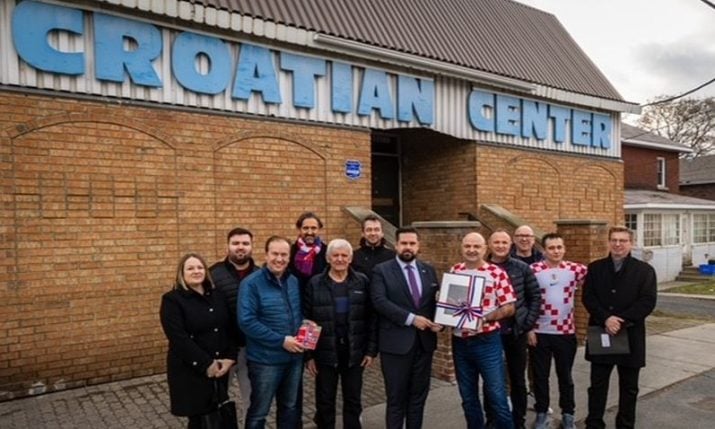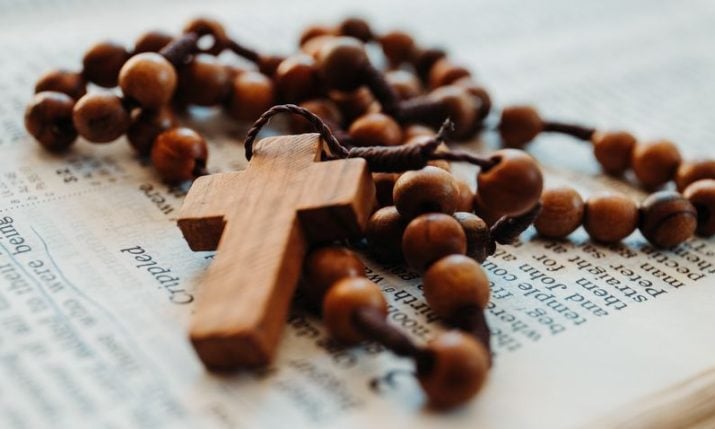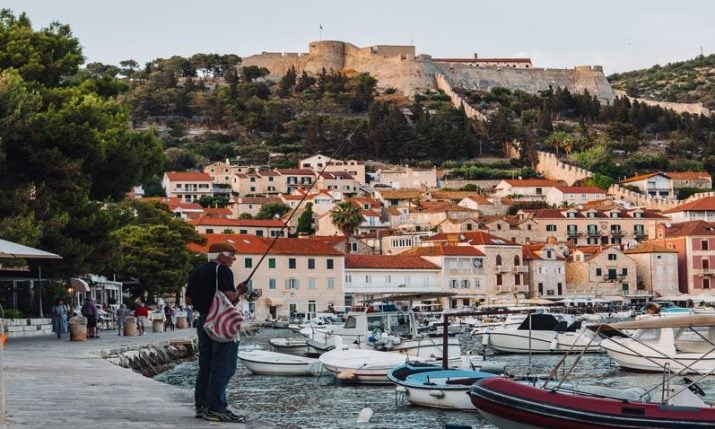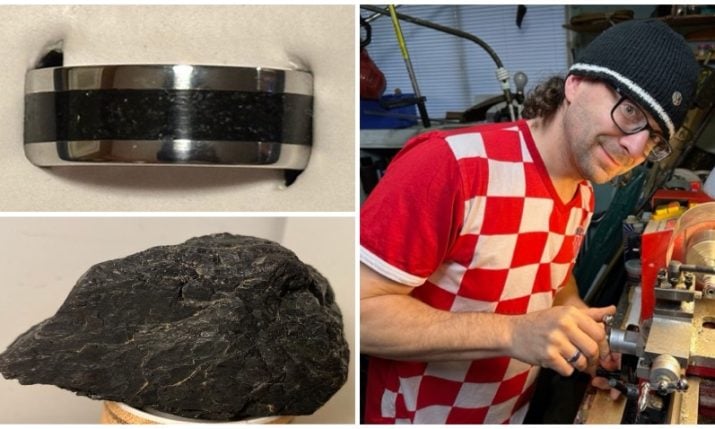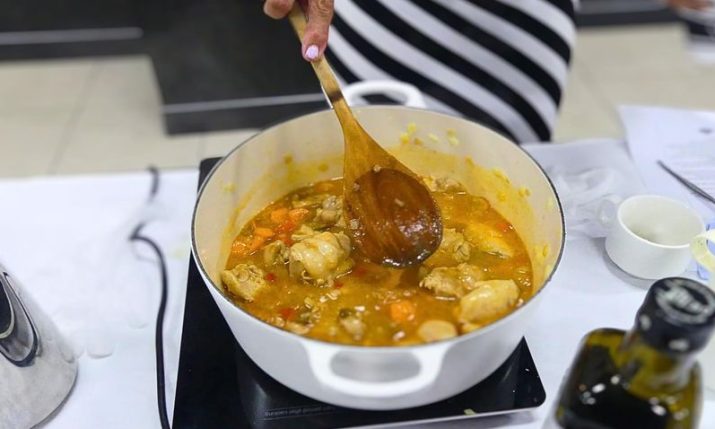Croatian klapa groups from all over the world gather in Zagreb for memorable night
- by croatiaweek
- in News
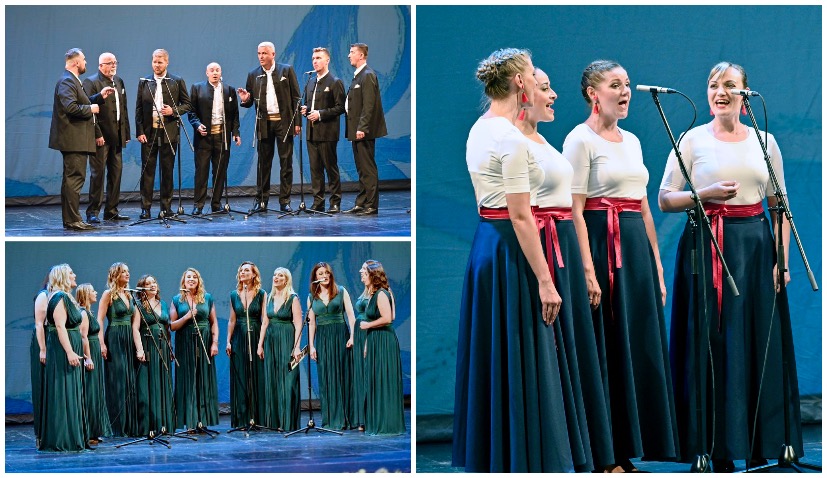
A memorable night in Zagreb (Photo: Croatian Heritage Foundation)
At the Croatian National Theatre in Zagreb, as part of the event “Meeting of Croatian Klapa Groups from Outside the Republic of Croatia,” eight groups from different parts of the world performed. The event, for which the program was devised by the doyen of Croatian klapa groups, Joško Ćaleta, is one of the most important events of the Croatian Heritage Foundation (Hrvatska matica iseljenika).
ZAGREB, June 11, 2023 – After more than fifteen years since the last gathering of klapa groups from the Croatian diaspora, the Zagreb audience had the opportunity to enjoy the best performances by Croatian klapa groups from outside the Republic of Croatia this Sunday, as part of the music event “Meeting of Croatian Klapa Groups from Outside the Republic of Croatia.”
This event is one of the important ones in the program of the Croatian Heritage Foundation, and for the third consecutive time, it was held in the magical setting of the Croatian National Theatre in Zagreb. The artistic director of the project, Joško Ćaleta, devised the program.
The participating klapa groups came from various parts of the world, and in their home countries, they promote the identity of the Croatian people. At the beginning, the director of the Croatian Heritage Foundation, Mijo Marić, addressed the audience and emphasized that the Croatian Heritage Foundation has been gathering Croatian emigrants from all over the world for about 70 years.
“In the past 5 years, we have realized between 60-70 program contents with our emigrant community. This year, we were brought together by the singing of the klapa groups, which emerged from the traditional vocal music of the Dalmatian and coastal regions,” said Marić, reminding that klapa groups were formed in the mid-19th century as a “male domain,” to which women joined in the last century and contributed their talent and beauty.
He emphasized that UNESCO recognized this cultural heritage in 2012 and included klapa groups in the list of intangible world heritage. In conclusion, he wished everyone to enjoy high-quality performances and then enjoy the gathering with their own people.
“At numerous gatherings around the world, Croatian communities are increasingly hearing the singing of klapa groups, and tours of klapa groups in our emigrant community are becoming quite popular. Klapa groups are one of the most recognizable Croatian indigenous musical expressions and one of the best and most beautiful ways to preserve cultural heritage, a way in which we can introduce Croatian culture to young people and make it attractive. We can also celebrate our Croatian identity together. Klapa groups unite Croats in Croatia and the world, and tonight, as the head of the Central State Office for Croats Outside the Republic of Croatia and an envoy of the Prime Minister of the Republic of Croatia, I can say that klapa groups will always have support because we recognize what is important, the preservation of Croatian heritage and Croatian identity, and everything necessary for future generations to know to whom they belong and recognize the values that belong to the Croatian people,” said Zvonko Milas, State Secretary of the Central State Office for Croats Outside the Republic of Croatia, on this occasion.
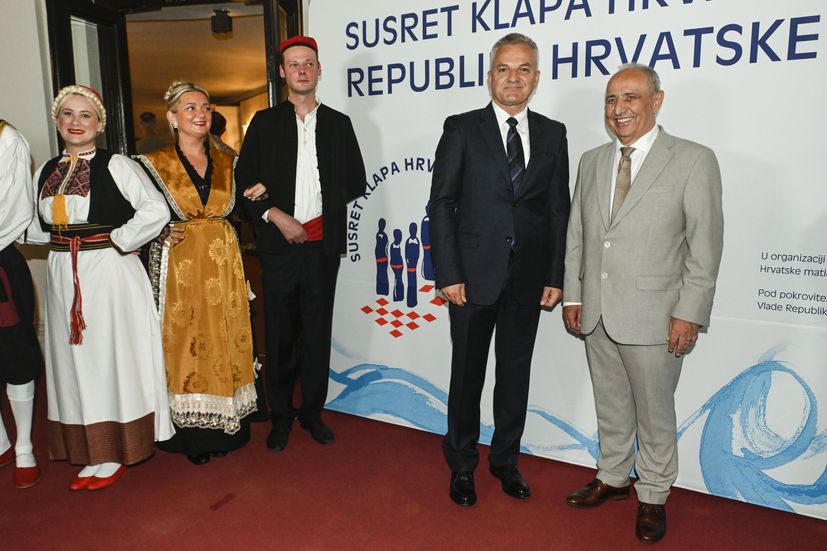
Zvonko Milas and Mijo Marić (Photo: Croatian Heritage Foundation)
Davor Ivo Stier, envoy of the President of the Croatian Parliament and a representative of the Croatian Parliament, emphasized that the Croatian Parliament will always strongly support the stronger connection between the emigrant and homeland Croatia.
“Klapa groups have always brought people together, singing brings people together so that they can celebrate the most beautiful moments in life, so that they can better cope with the more difficult moments. Therefore, today klapa groups gather from the homeland and emigrant Croatia, from different countries and continents. Klapa groups gather people who are a thousand kilometers away from Croatia and belong to the second or third generation of Croats, but have retained their love for their homeland and express it through song. I think that is a special emotion, a special form of patriotism,” said Stier.
The musical program was opened by the “Dalmari” klapa group from Slovenia with the songs “Marin nam je doša” and “More” (Marin Has Arrived and Sea). The klapa group, whose name contains a play on words with Dalmacija (Dalmatia) and Maribor, has been wholeheartedly promoting Croatian vocal heritage in the city of its origin and throughout Slovenia since its establishment in 2009.
This was followed by a performance by the female klapa group “Biseri” from Hungary, which operates as the youngest section of the Undan Croatian Association. The members of the klapa group, who sing both traditional klapa songs and Croatian songs from the Burgenland region, were greeted with a big applause from the audience.
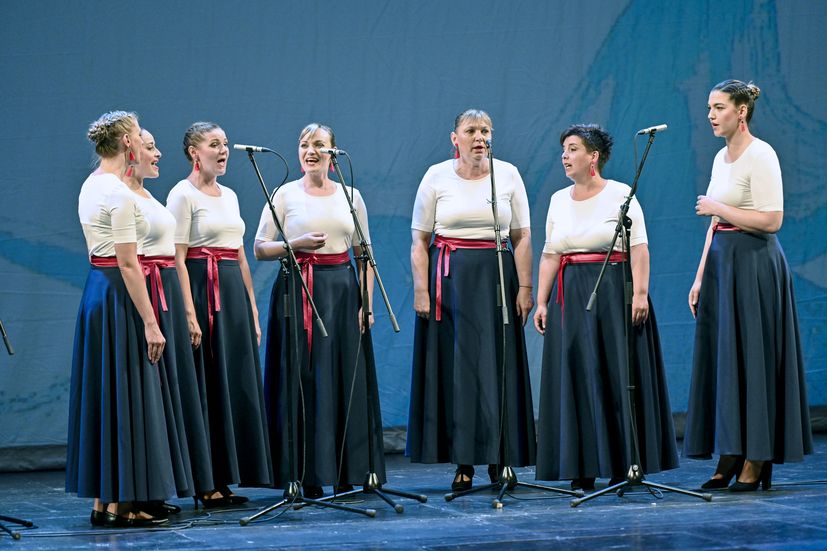
Klapa Biseri from Hungary (Photo: Croatian Heritage Foundation)
Next, the well-known male klapa group “Zvizdan” from Posušje took the stage. The klapa group, which is often seen as a guest at domestic klapa song festivals, delighted the audience with their performances of the songs “Loza u škripu” and “Pramaliće moje” .
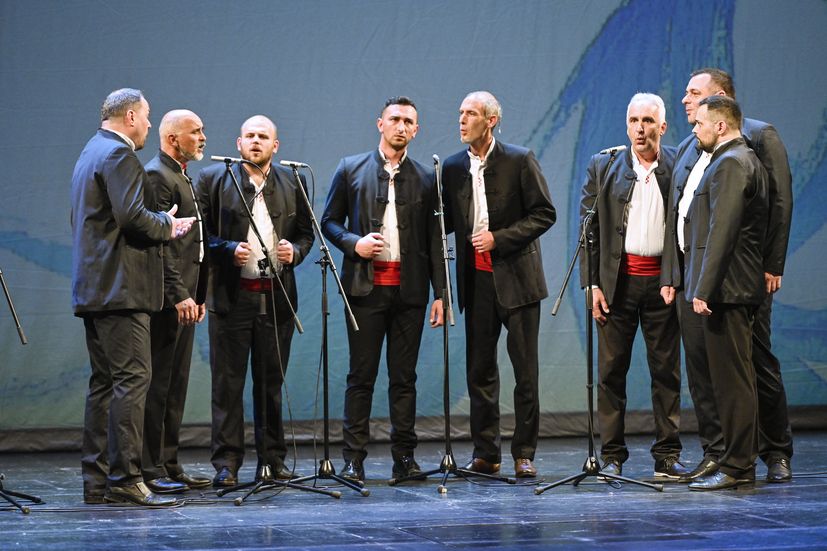
Klapa Zvizdan from Posušje, BiH (Photo: Croatian Heritage Foundation)
Two other unique klapa groups graced this a cappella festival: the female singing group “Filiae Croatiae” from Stuttgart and the “Klapa Hrvatske katoličke župe, Croatia” (Croatian Catholic Parish Singing Group, Croatia) from Munich.
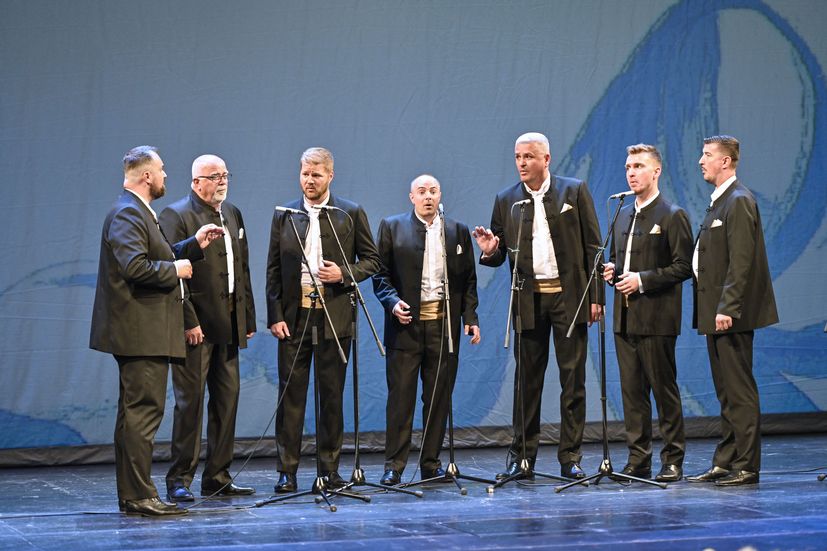
Klapa Croatia from Germany (Photo: Croatian Heritage Foundation)
Both klapa groups include traditional Dalmatian melodies in their repertoire and also nurture sacred songs. Moreover, the Croatian Catholic Parish in Munich, where the Klapa Croatia often performs, is the oldest Croatian foreign parish. These days, the parish celebrated its 75th anniversary, and many agree that today’s foreign missions were born precisely from it.
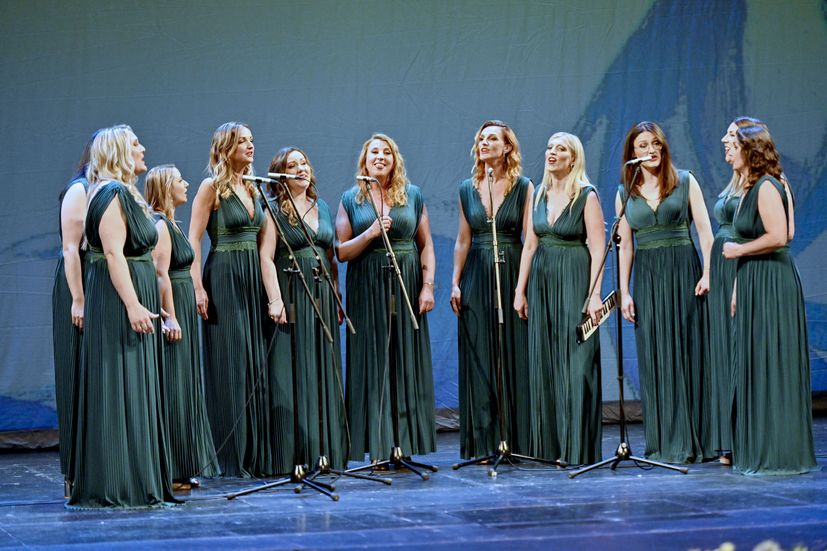
Klapa Fillae Croatie from Germany (Photo: Croatian Heritage Foundation)
The Zagreb audience had the honor of hearing a brilliant selection from the rich repertoire of these singing groups on this occasion. The klapa group “Valovi” from Buenos Aires, whose members are daughters and granddaughters of Croatians who migrated to Argentina, left a special impression on the audience. Their work was awarded the “Order of the Republic of Croatia” by former President Kolinda Grabar-Kitarović in 2018. They sang the songs “U zemlju latinsku” and “Otoče” for the audience.
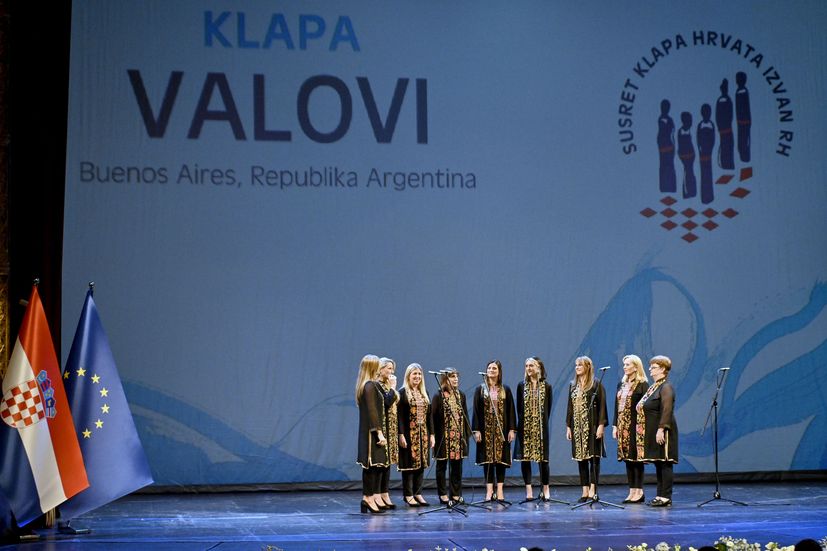
Klapa Valovi from Argentina (Photo: Croatian Heritage Foundation)
The spectacular evening of klapa groups concluded with the local klapa groups “Dišpet,” which has been at the forefront of the female klapa scene for 25 years, and the award-winning singing group “Stine.” All the klapa groups performed the final song “Golubice bila” together, after which Mijo Marić, the director of the Croatian Heritage Foundation, presented them with certificates of appreciation for participating in the gathering and gave them commemorative gifts.
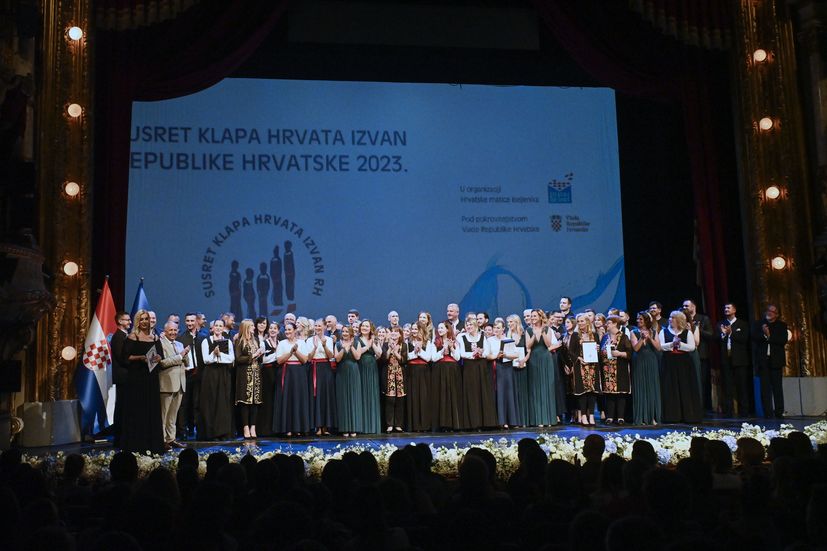
Klape HNK Matis (Photo: Croatian Heritage Foundation)
“The Meeting of Croatian Singing Groups from Outside the Republic of Croatia” was held under the patronage of the Government of the Republic of Croatia.

